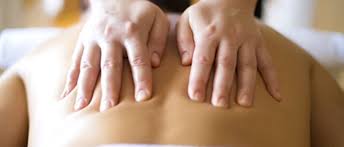|
Are you the type of person who likes a regular massage? Maybe you get treated now and then for your birthday or you give yourself a treat. Maybe you’ve never had one and wonder what it entails or are unsure of which one is actually right for you. Two of the most common forms of massage therapy are Swedish Massage and Remedial Massage and each have their own benefits. Swedish Massage Swedish massage is suitable for relaxation and stress relief. It is designed to warm up the muscle tissue to release toxins, tension and soreness. It may involve the use of essential oils, to reduce friction as well as for their aromatherapy benefits. There are five primary strokes involved in Swedish Massage:
Swedish massage is given to increase blood circulation, easing the tension in the body’s muscles and improving the muscles’ flexibility. It is known to release metabolic waste such as lactic and uric acids from the tissues of the muscles. It also stimulates the skin as well as the nervous system to soothe the nerves, reducing both emotional and physical stress. Remedial Massage Therapy Whilst a relaxation or Swedish massage helps de-stress and loosen up your body a remedial massage is geared for those who have chronically tight or painful muscles, repetitive strain, postural problems, or are recovering from injury. Remedial massage therapy treatment includes deep tissue massage, which utilizes classic Swedish massage strokes with specific firm and deep pressure to address areas of pain and muscle ‘knots’ and may also include trigger point therapy or myofascial release therapy depending on your symptoms. With an in-depth knowledge of anatomy and physiology the remedial massage therapist can carry out an assessment and provide the appropriate treatment. It can be an all over general massage where the therapist works you head to toe finding and releasing tension as they go, or it can be a very targeted session focusing on a specific area. Most pain is myofascial (soft tissue) in origin. Trigger points (sensitive points in muscles, which radiate or refer pain to various parts of the body) can mimic many conditions. Most headaches originate in the muscles of the neck and head. Much of the pain from angina comes from the hypercontraction of the chest muscles. Abdominal and pelvic pain can be caused by trigger points in the abdominal and pelvic muscles. Low back pain and sciatic pain are far more likely to originate in muscles than in vertebral disc problems. Remedial massage therapy can be combined with Physiotherapy treatment to provide patients with a full-service approach to rehabilitation and muscle relaxation, accentuating the effects of physiotherapy as well as promoting recovery. The remedial massage therapist uses skilled manipulation to bring about pain relief, correcting and normalising the body’s muscles and soft tissues. They are experts at identifying your trigger points and releasing built-up tensions that cause pain. They are skilled at dealing with all types of conditions, including sports injuries, traumatic injuries, overuse injuries and stress-related tensions. For athletes, or anyone who’s physically active, Sports massage combined with remedial massage techniques can help boost performance as well as support recovery from intense workout sessions and post sport activity. There might be a certain level of discomfort for remedial massage to be effective, but it should not feel too uncomfortable. The pressure used should not be painful. During treatment, there should be communication between the therapist and the client to get feedback on pressure, comfort level etc. So, there you have it.
The massage should be designed to match you with the technique that’s best for your unique health and wellness situation, whether it be a relaxing Swedish massage or a more intense Remedial massage. Here at NorthWest Physio + we specialize in customizing each massage session to the specific needs of every client. 7/9/2021 11:31:59 am
You’re that “Nothing” when people ask me what I’m thinking about. Comments are closed.
|
Archives
June 2024
Categories |
|
NorthWest Physio + Kumeu
4B Shamrock Drive Kumeu Auckland |
NorthWest Physio + Whenuapai
87 Brigham Creek Road Whenuapai Auckland |
09 412 2945
[email protected]
www.northwestphysioplus.co.nz
Monday - Friday
Appts from 7am - 6pm
Office hours 8am - 5pm
[email protected]
www.northwestphysioplus.co.nz
Monday - Friday
Appts from 7am - 6pm
Office hours 8am - 5pm
Your local physio, massage and acupuncture therapists who proudly service the North West Auckland community
Kumeu, Riverhead, Huapai, Waimauku, Muriwai, Taupaki, Whenuapai, Woodhill and Massey
Kumeu, Riverhead, Huapai, Waimauku, Muriwai, Taupaki, Whenuapai, Woodhill and Massey


 RSS Feed
RSS Feed